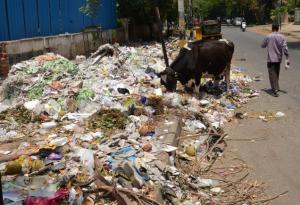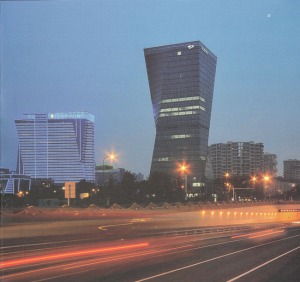Is CBDC the new form of slavery?
The CBDC (Central Bank Digital Currency) is being rolled out, its time to think of the potential consequences. We will not even go into the privacy issues, which has been covered in great detail, but rather touch up on the consequences (intended and unintended):
Usefulness
For the uninitiated, what the CBDC does is have your currency digitally (it is same as having 5 x 100 rupees, 2 x 500 rupees, but digitally). To pay Rs 575, you pay one 500, one 50, one 20, one 5 – all digitally. If you are wondering, is it not easier to just online pay, use a card or account transfer the Rs 575? Yes, you would be absolutely right! It is much simpler, easier to do so. So, if CBDC is not about new capabilities or convenience, then what is it about?
Control
Yes, control! Every single transaction can now be tracked and controlled. The Big Brother can now determines what you can buy, what you can eat, where you can travel, how much you can spend on medicine or your kid’s education.Personal Priorities vs Centralized control
As an exaggerated example, consider that you are sick and in hospital, not having received your salary for 2-3 months and don’t have much money. Your property tax is due and your local municipality, in its authority decides to auto-debit the CBDC linked to the PAN card? You are left with no money for medicine or treatment and your family with no food. Think about it.
Negative interest rates
As we all know the powers that be are wont to come up with new rules, as Japan did several years ago, to create negative interest rates. For the uninitiated, a negative interest rate of 5% means, you lose Rs 5 every year for keeping Rs 100 in your bank (just as positive interest rate means, you get paid Rs 5 every year).
Why is this done? In the case of Japan, ostensibly, to increase spending, boost consumption and drive the economy. You may ask, has it worked? No, it hasn’t made any difference in a decade and that is not for lack of trying! Japan is still in deflation, just as its government keeps printing new money, runs a huge deficit and takes money off of savers. Unrelated to this topic, Japan has the highest suicide rates of any country in the world.
Conclusion
In the end, CBDC is not about convenience or accountability (there are existing mechanisms to do this). It is all about control. It seems to be a new form of slavery, a modern day colonialism. After having won our
freedom from the British in 1947, it would seem, we are about it to give it up! Think about it. Talk to people in power that you know and hopefully, convince our government and bureaucrats to takes the right decision and scrap CBDC.
As Schwab famously said “Give me control of the money, I care not who runs the nation”. In their infinite wisdom, our bureaucrats and politicians may feel they would be the ones to wield this power, and retain control of this genie, and this would somehow remain benign. But in all probability, they are themselves being used to usurp this power, so it can eventually be usurped by others, higher up the food chain. It has all the hallmark of a new colonialism, that would make the British colonialism of India, a walk in the park. Everyone, including the elites and political class may end up being a slave to the neo-colonizers. Time to beware and think very hard.
Lifted Burden
The ministry of road transport released guideliens to help accident victims, which doesn’t involve harassment by police, not waiting to start medical treatment till an ALL-OK from the police (by which time, most victims would be gone for good).
New norms to help accident victims
It took 60 years, some basic common sense, a Supreme Court order and a new government to get this! But, it is a welcome relief!!
Simillarly, when will the law ministry wake up to judicial reforms? That a vast majority of cases in the Court are of property disputes and many based on archaic laws. Take for example, rent control – which has no place in a free market system and is today being blatantly abused by the tenants.
Keep the laws that make sense for today’s world, get rid of the rest. Fix a timeline for finishing cases and automate the scheduling process to clear the clog!
Unclog our courts
Based on my recent experience with the Indian court system, I can safely say that it favors the criminal and unscrupulous elements, not so much because the laws are wrong, but because the system is kludgy and inefficient. But there are a few glaring bottlenecks that can be addressed easily to duct-tape and immediately speed up the system!
1. Before admitting a case, the Judge or a senior court appointed Counsel should call both the parties for a discussion, spend a few hours and see if there is scope for resolution, saving both of them years of trial and tribulations!
2. Once admitted, the 2nd party should be made to reply/counter within a set time (say a maximum of 4 weeks). If it is not done, the court should issue an ex-parte decree and it should not be contestable.
(Now, it take several months for the parties to put their counter. If one is intent on delaying it, it can easily stretch several years. If an ex-parte is issued, it can still be ‘set-aside’/appealled at a later time. If one cannot be bothered to be present & counter a case on time, why let them challenge/appeal?)
3. Keep all arguments in writing and dispense with oral arguments for prelimnaries. Instead, let the Judge call the counsels if they need clarification.
(Now, after submitting written arguments, both parties are expected to present oral arguments. Unexpected court holidays, Counsel/Judge/party calling in sick can all make this take several months. Years, if one party seeks to deliberately delay things. In any case, this has no practical use as a Judge hears so many arguments during the day, that they seem to rely only on written arguments to make their judgement.)
4. Have orders made within a set time
Once both arguments are in, Judge should deliver the order in writing, within say 7 days. Now, the order can take several weeks to be issued in writing – even after the Judge has it down.
5. Automate scheduling.
To make sure all of this happens on time, automate. Now, the whole process of scheduling and setting dates itself seems to take a huge amount of time of the judicial machinery, time which can be saved & spent on more useful things with automation.
6. Set the bar high for Appeals
Now, anything and everything can be appealled. This gives an incentive to the wrongdoer to delay things until the other party gives up. Justice delayed is justice denied. Set a high-bar for allowing appeals. A Judge or a senior Counsel appointed by the Court should verify that something material has changed or there is new evidence that warrants an appeal. If not, just dismiss the petition. This whole process shoud be done in, say, a maximum of 2 weeks.
The new GOI was seeking inputs to improve things. Is the PMO office listening?
Jayanagar 4th Block is now more expensive than Washington DC!
The Karnataka government has release the latest guideline values and the price-per-sft in Jayanagar 4th block, Bangalore is Rs.16400/- or about $273 per sft ($2730 per sqmt).
The guidelines values are about half the market price! So, the market price would be about $5000/sqm.
Compare that with Washington DC rates! About $5500 in city center and $4400 in suburbs. We are officially more expensive than the suburbs of Washington DC!!
What do we have to show for it?
http://www.thehindu.com/news/cities/bangalore/garbage-problem-in-jayanagar/article5948618.ece
Welcome to the most expensive dumping ground!
MOPSOTHCRDR – Reloaded
In what might seem trivial to the world, but is indeed an astounding progress for India, the external affairs ministry seems to have declared that no police verification is required for re-issue of passport!
After the harrowing tale of MOPSOTHCRDR. the move by the new government is very welcome.
Too much of a good thing?
Not too long ago, currency devaluation was looked at as a good thing. GOI went to great lengths to keep the rupee low to make it favorable for exports. In 2011, when rupee appreciated to 43 to USD, RBI intervened, saying that an appreciating rupee was bad for exports and the economy. We prefer a lower rupee to boost exports.
But, at 54 to USD, everyone was worried of a currency problem. At 67, it was a full-blown currency crisis! If one had listened to the words of our “great economists” in 2011, they could be forgiven for expecting the rupee slide to 67 to have increased exports by 30-40%. On the contrary, exports went down during that time. If a weak currency was the key driver for exports, Zimbabwe and many African countries would have been export powerhouses a long time back!! But, one can safely assume that the lesson will be lost and the “experts” would repeat the same message a decade from now.
What is not common knowledge is what the RBI did (or how it went about doing it) in the intervening time. In 2011, the RBI decided to take 50% of all dollar holdings of all Indians. The rational was that rupee was not a free floating currency, so the RBI can do this simply by sending a notice to all banks asking them to convert 50% of all $ holdings of all companies and individuals within 30 days. The writing on the wall was immediately apparent. Six months later, the 50% became 100%. Another 6 months later came capital controls (albeit with very different and supposedly palatable names).
Coming back to our original point, there was a time when governments willingly devalued currency as a good thing. As Brazil and now India (and soon Japan will) realize, that currency devaluation is too much of a good thing! Although a weaker currency, in the short run, may increase exports and create an illusion of prosperity, its impact on the overall economy and the general populace, is rather negative.
How deep is the river? Oh, its only chest high for a duck!
The Cancer Within
A lot of parasites do not kill their hosts. A virus is a good example, that just trys to live off of its host without killing it and when beaten down, jumps to a new host for survival. In contrast, cancer (even thought, technically it is the host cell itself and not a parasite) converts other host cells, ends up killing the host and thereby kills itself. One of the scariest scenarios painted by authors of medical fiction is a cancer that is communicable! One that jumps to a new host just before killing its previous host to continue its survival, and the trail of destruction.
Now hold that thought for a minute.
A government or bureaucracy, by definition, does not produce anything. The only source of income is tax or inflation. That, to me, seems to fit the definition of a parasite. Now add to that the rampant corruption that begins with the buying of votes and the chain reaction that this dance of democracy sets off. When the nod-nod-wink-wink corruption turns into you-cannot-do-this-without-paying extortion, it chokes off the host and when this happens in a systemic way, the productive class dwindles and there is a large feeding parasitic population. Eventually it will destroy the cancer, but the host will die with it too.
MOPSOTHCRDR
 (Actual Photo, Shot at location)
(Actual Photo, Shot at location)
In spite of a healthy participation from private sector in some of the government agencies, the bureaucracy is destined to make everything just that much more harder, that it takes away the time of people from other productive tasks (not that the common man is expected to have any productive use for his time).
The once in a decade dance with bureaucracy to renew my passport started earlier this month! The new systems and processes seem quite impressive, until one hits the actual wall of bureaucracy. Once in the system, a series of paperwork for things deemed necessary by the invisible hand!
If you had changed your address in the 10 intervening years from your last passport, then tough luck. Proof of address? Driving license is not considered a valid document for any purpose! Submitting a bank statement? Make sure it is original. We don’t believe in e-statements and paperless office. Get everything in original, with 3 copies!! If not, get everything notarized or attested. Now, go away. And while you are at it, get Annexure B, C, H, L…..
After the 3rd visit I was finally allowed to enter the hallowed portals where the actual bureaucrats sit. Every single one of the Granting Officer was (and I am not making any of this up) a grumpy, tired old woman, close to retirement, who would rather be anywhere else. The one I was assigned to asked me to open and hold the file – we get so many people, you expect us to open each of the files ourselves? Open it and hold it for me to see. Now hold it down, while I put the seal. Keep it in this bunch, I can’t bend down. Then silence.
If you do not get any further response, it means your audience has ended and you can move away.
I politely suggested that she should talk to the government about outsourcing this part of the job also to private agencies (like the rest of the process, which seemed to be working better!). I got a glare that could burn through steel and quickly scurried away.
And in case you are wondering what the heck “MOPSOTHCRDR” has to do with this whole thing, that is the very descriptive description that will actually appear on your credit card statement for paying to take up the appointment. For some strange reason, it seems entirely appropriate!!
Welcome to India.
The Chinese conundrum!
To an astute political observer the problem is immediately apparent – India just does not know how to deal with China. Even a casual observer who had any contact with China will not fail to see it soon – to the average Chinese person the “face” is a very important part of any relationship. What is said in public and media matters a lot more than what is discussed in private.
Pakistan had used this to the maximum and has a great relationship with China. India, on the other hand, is still a world away from developing a close relationship. Our top leadership disparages them in the media and then try to be very cordial in private meetings – if they do it the other way around, things will be a lot more effective. It should have been easy to figure out, but for some unfathomable reason, it is not – even after several decades.
I happened to be China when Li Keqiang was in India. The Chinese media was touting it as the real deal. Schools were hoisting Indian flags next to Chinese flags and there were talks in the local media about teaching Hindi to Chinese children. Contrast this with the Indian media where there were headlines from the likes of Firstpost screaming “Li Keqiang visit to India was nothing more than a PR exercise”.
Seriously, what more do we want? Have their top leadership move to Delhi with their families and live there? Sit with prospective businesses to fill out forms? Once a policy decision has been made to make business easier, the welcome speech is a cue, for us to leverage it and do the actual business!
Did I mention that our External Affairs minister mentioned to his Chinese counterpart (again, if I might add) that the balance of trade was very much in favor of China and China needs to do something about it? Unless China was imposing import restriction on any goods or services from India, the onus is on us to do something to increase exports! Anything else is like the class loser asking the topper to fix his being the loser.
I am not sure why this simple logic eludes our top political minds. Provide the right infrastructure, provide electricity, help make local businesses competitive and they will produce and export products and that will fix the trade imbalance. It really is that simple!
Things are, of course, far from perfect in China. The restriction on everything from WordPress to Facebook and restrictions on even specific search terms eventually throttle productivity. And, that is an edge India may have – if our political leadership wakes up to the rest of problem and fixes it!!
Let me give another example. Chengdu is a tier II city in China, only known for its spicy food and pandas till the 90’s. A city delegation had visited Bangalore in the mid 90’s with the mission “to make Chengdu the Bangalore of China” – seriously, its still on their official manifest!
Fast forward twenty years and Chengdu looks like a million years ahead of Bangalore. With great infrastructure, a supportive government policy for technology companies, well planned universities and training programs to boost manpower, it is no wonder several hundred of the world’s largest technology companies have a base there.
They have direct flights to most parts of the world (and even a direct flight to Bangalore, they still call a ‘sister city’) and they are working to make it even better.
Bangalore? We are still figuring out how to clean our garbage.
RTF – its not what you think!
RTF – the Right to Food is the latest populist bill passed by our GOI. Noble as its intentions are, it is another hare brained scheme that will end up costing the nation a lot!! It will not only not benefit its intended audience, but will also end up raising prices across the board. Allow me to explain….
Firstly, I don’t believe governments should have their hands in anything that the free market can solve a whole lot better. Even the best run governments are inefficient – diverting resources, consuming huge overheads and bogged down by bureaucracy. With that in perspective it doesn’t take much to figure how our GOI will fare. In case it does, we have our PDS (Public Distribution System aka “Ration Shops”) as a case study. Every year millions of quintals of wheat are left to rot and to feed the rodents while millions go hungry – not to mention the level of corruption and mismanagement in the system. Imagine what would be brought to bear on the same PDS which will be tasked with procuring and distributing wheat and rice to the entire population that will come under the Food Security bill.
Secondly, this will lead us directly down the path of high food inflation – from a) the government buying the commodities with money they don’t have and b) the real problem being scarcity rather than redistribution (see The Economics of Exploitation for more on this). So, not only will the intended recipient not get access to quality food in any meaningful way, the entire citizenry would also pay a high price (quite literally) for their food.
The root cause of the problem is that farming today is not profitable. Most farmers drown in debt and are committing suicide. What profits are there are made by middle-men. Starting with an already fractured land bank, which keeps dwindling with the oligarchs of our country acquiring them for industries and “SEZs”, to lack of a formal system to advance loans to small farmers and collect it back, to a lack of a proper supply chain, the list of problems with our agricultural economy is enormous. From being an agrarian society, it has come to a point where the last outgoing RBI governor had warned that the next crisis in India might be an “agricultural crisis”.
The way to fix this is for the GOI to incentivise this sector – no, not by providing a subsidy, but by making it easy for the farmer to again pursue it as a real vocation. To make agriculture a real employment and wealth generator that a generation of educated, technology savvy entrepreneurs will look at it as a profitable venture – and then, let the free markets do the rest!!
Once the supply increases, not only will the general population be able to afford rice & wheat like the food bill envisions, but the new economy will generate enough jobs and income that they can afford dal and chicken as well! Incidentally, the rising employment will reduce the government’s NREGA rural unemployment subsidy cost!
Elections are not known to be won on logic and good economics, so it remains to be seen if better sense & sensibility prevails.
The Missing Media Responsibility
I was pained to see a recent Bangalore Mirror article waxing eloquently and glorifying one family in Bangalore that went on to have 15 (yes fifteen) children!
From the article: “Children are a gift from God and I believe life comes from God,” says David (the father). Yeah, sure. But man can play his part responsibly! That is why God also gave him a brain, I think.
Large families are a burden on our society, especially in a country like India, which doesn’t have infrastructure even for its existing population. Please use birth control. Future generations will thank you for it!

In another article, again in Bangalore Mirror, the writer harangues Karnataka Police for wasting the parole time of Madani – who is an accused terrorist in the Bangalore blast case. Yes, the media doesn’t want our police to waste the time of an accused and wants his paper work given more importance than less pressing, mundane work like catching criminals and keeping our city safe.
The media has become an apologist for the misfits and criminals, instead of being the voice of the society and a crusader of justice.
Thank you Bangalore Mirror. Where is the media responsibility?
And another one! An article by the author of “God of small things” that seems to imply that she knows something that the rest of the country doesn’t and that Afzal was framed and hanged for political ends.
As bureaucratic and messed up as our system is, I believe there are several decent individuals in all ranks that would have sounded the bugle if all rule of law were brazenly flouted as she seems to imply.
If she doesn’t trust anybody in India to be a decent human being – not one police personnel, not one member of the judiciary, not the supreme court, not the chief justicies, not the PM or the President, she should probably move to a more developed country!
Argentina’s chimera!
“Argentina Freezes Prices to Break Inflation Spiral“ reads a recent news.
Inflation in Argentina is currently averaging 30% a year. But, if it were so simple to stop inflation with a Government decree, every government on earth would have done it already! Why would a vendor freeze price when his input costs are going up? Why would a business incur loss on every sale? Instead they would just not sell – price controls always leads to scarcity.
All around inflation is always a monetary phenomenon. The government should address that instead of looking for a free lunch. Policies cannot control free markets – its a chimera!
India, in some respects, may be headed down the same inflationary path, with everybody urging for a easier credit policy.
On a different note (& post!): The Fiscal Cliff is a non-entity and will be resolved and things will move on, although the Stock Markets would jump as if it was a great revelation! – Dec 12, 2012
The stock market has done that and the euphoria is now over. Its a long ride back home, with more rate cuts on the way! The rate cuts won’t do much except stoke inflation. There is no such thing as a free lunch!
Happy New Year!
In spite of all the hullabaloo about the Mayan calendar, the world did not end in 2012, but the year certainly did!
I hope the Mayans had whatever fermented spirit that is their usual concoction to celebrate the new year and had a hearty laugh about everybody going over the cliff with their apocalypse rumor.
I thought, I’d leave the readers with the below snippet that found its way to my inbox via a chain mail:
In India, rice is INR 40 a kg, but SIM card is free!
Pizza reaches home in 30 minutes, the ambulance in one hour and the police, almost never!
Someone with 45% marks can get in through the quota system, but those with 90% marks can’t get in on merit.
Where IPL teams are routinely auctioned for hundreds of millions of dollars, but 20% of the country still starves for two square meals a day.
Think about it!
The Coming Asian Job Cliff
While the world waits with bated breath for the US Fiscal Cliff, a lot of economic changes that would impact India and China in the next 5 to 10 years are underway. For the record, the Fiscal Cliff is a non-entity and will be resolved and things will move on, although the Stock Markets would jump as if it was a great revelation!
Quietly, but steadily, manufacturing jobs are returning to America. The “Made in USA” tag is making a comeback! The only difference is that the factories are automated 90% or more.
What does this mean for India and China in the next decade – countries that rely heavily on “human capital” and exports? Without forward thinking and vision, this would of course be, bad news. Already the cost of doing business in India (wages in IT/BPO, Real Estate costs) are driving a lot of MNCs to places like the Eastern Bloc, Philippines and Mexico. Insiders see a lot of companies that rely on export seeing huge layoffs and retrenchments. Loss of jobs amidst a slowing economy is not good for India’s fragile social fabric.
In balance, China might be better off (in spite of its property bubble). A big lead in infrastructure and a well oiled domestic economy will help it move forward – possibly with domestic consumption absorbing the slack in exports.
On the other hand, India with its blinkered politicians who cannot envision anything more than the next election, would be hard hit. If nothing is done to create better infrastructure, reduce corruption and make it easier for businesses to do business – all of which grow the economy and create jobs, expect to see more of riots, division in society on many lines, violence and crime.
Contrary to what sections of India Inc and PC want RBI to do, lower borrowing costs would create mis-allocation of capital and investment, not growth.
That reminds me, whatever happened to the Family Planning program in India? The “We two, ours two” and later “We two, ours one” slogans on every wall, exhorted for by the GOI? Maybe, another post for another time!
Its like that only!
The best kept secret of India’s Education System!
“PMO objects to American citizen’s presence in education commission” reads a recent news article. If you had recently seen the GK books in our ICSE system, you will know why!
Two questions that grabbed my attention in the “General Knowledge” books of two different grades of ICSE: “What is the name of Kareena Kapoor’s sister?” and “Which town in Punjab was Kareena Kapoor’s hometown in movie <movie name>?”. Seriously, I am not making this up folks!
At this point, you may be thinking that a better questions would have been, “what is the IQ of the person who set this syllabus? Are crustaceans smarter than him/her?”, but then, you would be missing on the best kept secret of our education system!!
The GOI wants our future generation to launch rockets, invent life saving medicines, break new ground on nano technology – by educating them thoroughly on Bollywood! No wonder we don’t want alien citizenry to know about the “secret sauce” of our Education system!
USA & China might do well to learn from us – if you want the next generation of scientists and doctors, teach them all about Hollywood or Hǎoláiwù.
Welcome to India, maybe not – episode 2!
This is a follow up to the earlier post Welcome to India, maybe not.

The FRRO finally called up saying the visa was ready (what a surprise!). Does this bring it to a closure? Of course not! We are in India!
The year of expiry printed on the visa was wrong (2012 instead of 2015, which had already expired)! Maybe our busy bureaucrats don’t have the time to remember dates? Going by the reaction of the officer there (a pout & a shrug), such screw ups were quite common!! So, back to Delhi for fixing. And oh, we will call you when its ready!!
Seriously, what sort of people does our government hire that it takes so long to get something as basic as this right? Were they incompetent when they got hired or does time on a bureaucratic bench make them so?
When a country gets about 2 million visa requests annually, isn’t it time to get a proper system in place and have some professionals manning the counters instead of running it with technology and process that would make cave men laugh?
Consider this. For such a routine transaction:
- Bad policy to start with and no thought given to systems or process (why, oh why, a 3 months visa for a 3 year course!)
- No proper use of tools or technology. For a country that claims to be the world’s IT back office, we don’t have any!
- A lot of red tape, paper pushing & bureaucracy
- Utterly inept or apathetic people, who can’t or won’t take any decisions
On a more serious note, don’t we have anybody really competent and professional running our systems, policies & process? It is scary to think that if a routine task like this is not systematized, how would our creaky system react in case of an emergency? God forbid, if a storm Sandy or a Japan like tsunami were to happen here?
The race to the bottom!
“The China-India business relation has matured in the last decade but a wide trade deficit in favour of Beijing needs to be addressed by Beijing for the relationship to develop further”, Indian ambassador S Jaishankar has said.
I was stupefied when I read this. Here is the original link, in case you are equally shocked! It is like the dumbest student complaining that the class topper should score less “for the relationship to develop further”.
“If the trade deficit comes out a perception of unequal market access, frankly it is not good for the relationship because it does not give an impression of a fair relationship” the news article goes on to add.
Sure, lets us race each other to the bottom. I honestly wonder how such thoughts are conceived, especially in the corridors of power where decisions have big impacts.
China has solid, well planned infrastructure, solid network of roadways and high speed rail and a strong will to further it. All this has been achieved in the last few decades. Sure, there is a price to pay for it, but looking around India, one may be forgiven for thinking it is not too high a price.
Now, instead of trying to replicate the good work here, within an Indian context, we want to dumb down our neighbor to our level.
Its like that only.
For a stronger rupee, provide electricity!!
Facts:
- One of India’s biggest import is oil
- The maximum use of Diesel in India is for generators!!
Now, add the two together and we get some interesting scenarios:
- A large % of the Diesel subsidy goes for retail electricity generation.
- By providing proper power supply, not only would it reduce oil imports and reduce the CAD, it will also greatly reduce the amount of subsidy the government shells out on diesel.
- Better power supply makes for competitive industries (several reports point to losses & close downs of small/medium Industries due to lack of power!).
- Stronger industries boost exports. Lower oil consumption reduces imports – both of which strengthen the rupee, which in turn will reduce inflation and boost economy.
By providing this very basic infrastructure, the government can make the citizens happy, strengthen the rupee, boost economy and reduce inflation – all in one fell swoop!
Now, can some of our political executives junk their multi-hundred-crore phoren trips and spend the money on a few clean energy power plants instead?
Welcome our new parliamentary committee members!

1 box = 1 million; 100 million = 1 crore; 100 crore = 1 Koda; 100 Koda = 1 Kalmadi; 100 Kalmadi = 1 Raja; 100 Raja = 1 Rani (Photo credit: Wikipedia)
“Raja, Kalmadi made parliamentary standing committee members” screamed the news from leading dailies. Raja for “Energy” and Kalmadi for “External Affairs”.
Considering the volume of the financial scandal involved (between them, at last count, the alleged corruption stood at about 250000 Crores Rupees or roughly $50 billion) and the fact that both had spent time in Tihar jail, this is indeed extraordinary news by any standards. But its just another day in the life of independent India.
One is left wondering if “Energy” is really euphemism for money and “External Affairs” for how to send it out!
Its like that only.








